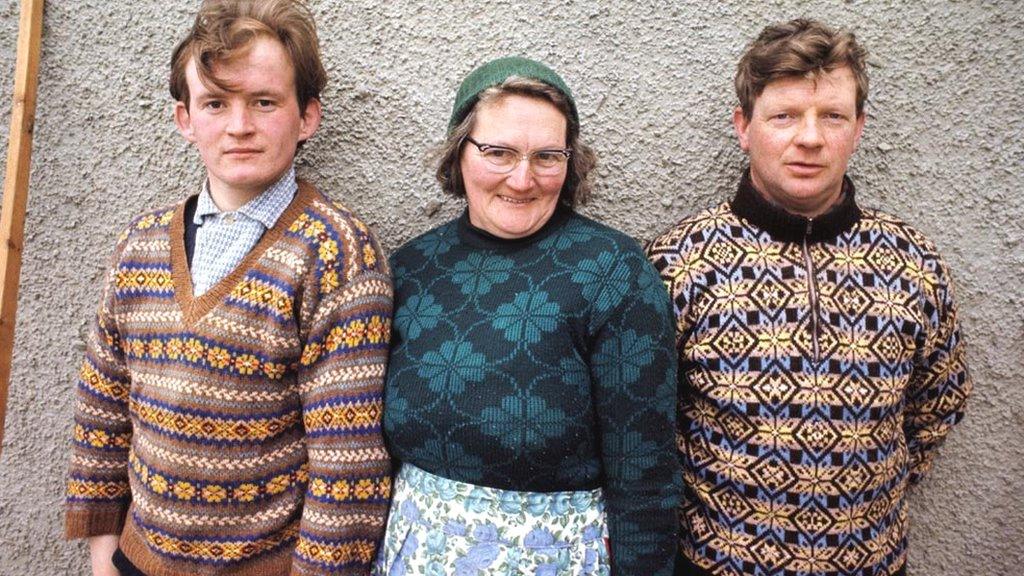Levelling up: New ferry for Fair Isle among UK grants
- Published
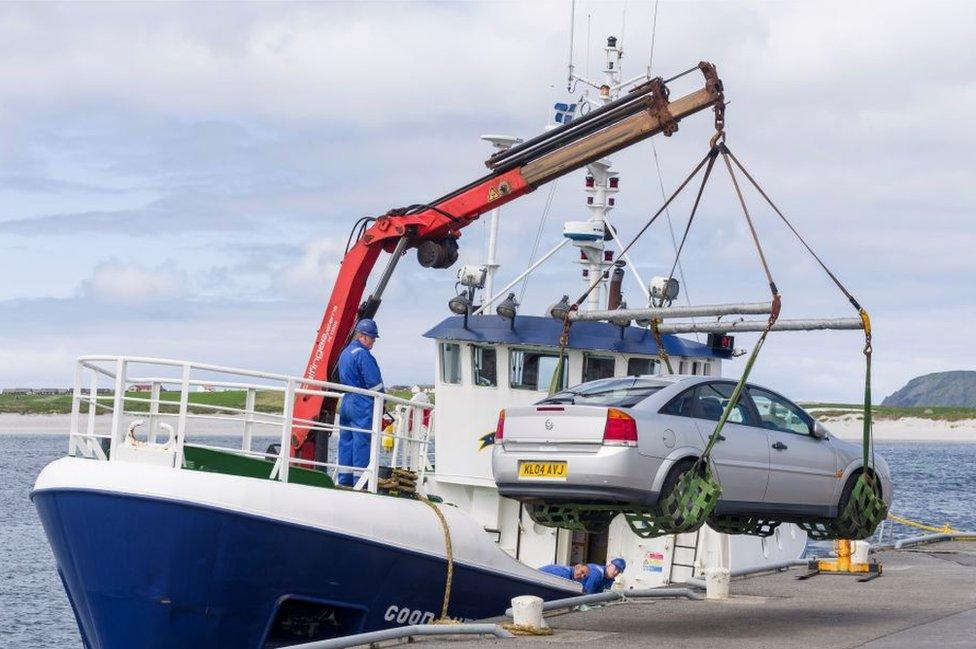
The current Fair Isle ferry is 30 years old
A new ferry for one of Britain's most remote inhabited islands is among 10 projects in Scotland that will benefit from UK government funding.
The restoration of Kilmarnock's Palace Theatre and regeneration schemes in Peterhead and Stirling will also share more than £177m.
Prime Minister Rishi Sunak said the projects would drive economic growth.
But the Scottish government said deciding how money was spent in devolved areas was "unacceptable".
Employment Minister Richard Lochhead also criticised the decision-making behind the grants.
He added: "It is incredibly disappointing that applications from some of Scotland's most deprived areas have been unsuccessful."
The largest single grant, of £27m, has been guaranteed for a new roll-on, roll-off ferry for Fair Isle.
The service is described as lifeline for the island, which is located 80 miles off the Scottish mainland, half way between Orkney and Shetland.
It is intended to support its residents, visitors and maintain supply chains, which will become further isolated unless the current vessel is replaced.
In 2021 the Fair Isle Ferry Replacement Project, external warned the Good Shepherd IV vessel was over 30 years old and did not meet current accessibility standards.
Emma Macdonald, leader of Shetland Islands Council, told BBC Radio's Good Morning Scotland programme about some of the issues with the current ferry.
"It's really difficult for some people to get on and off. It's slow, it's small, its unreliable in poor weather and this has a huge impact on the Fair Isle community," she said.
"This investment will make a huge difference, not just to the community of Fair Isle but to the whole of Shetland and we very much welcome it.
"There's a lot of work to do before we can deliver on this, but knowing we've got the funding is a huge start."
She added: "The sustainability of the island really was at risk. That's how serious the situation was. We don't have a spare £27m to fund a ferry."
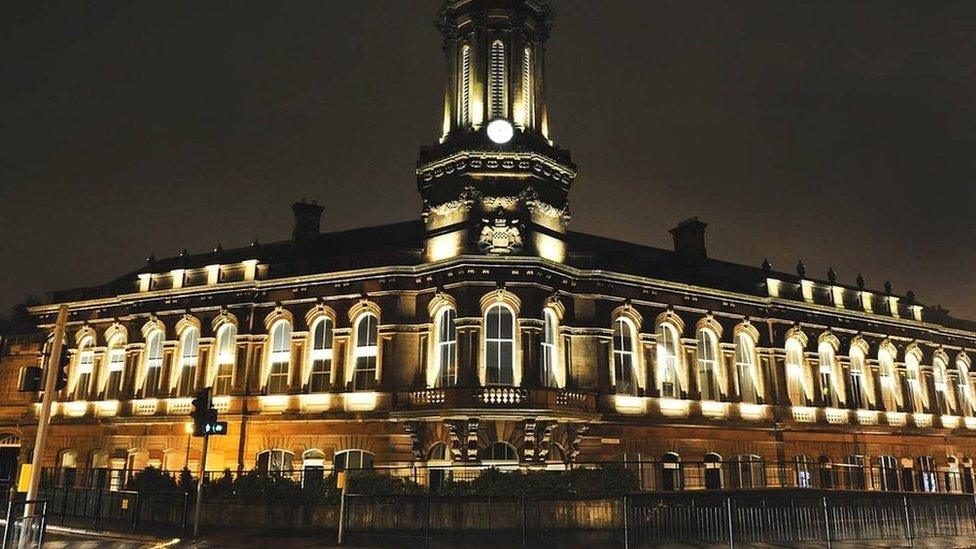
The Palace Theatre in Kilmarnock opened in 1863
Meanwhile, the 163-year-old Palace Theatre and Grand Hall In Kilmarnock will receive £20m, which will also be spent on a new park near the town square.
A similar sum has been allocated to transform Peterhead's disused Arbuthnot House into a new museum, library and cultural hub, while the marine aquarium in Macduff will also be modernised and expanded.
In Stirling, more than £19m will go towards the regeneration of the Forthside area in a bid to help create 1,000 new jobs.
Prime Minister Rishi Sunak said: "Through greater investment in local areas, we can grow the economy, create good jobs and spread opportunity everywhere.
"That's why we are backing a number of projects with new transformational funding to level up local communities in Scotland."
'Transformational projects'
Levelling Up Secretary Michael Gove said £2.1bn of funding across the UK would benefit more than 100 "transformational projects".
Elsewhere in Scotland:
A multi-storey car park in Dundee has been granted £14m for its redevelopment into a sustainable transport hub.
Nearly £20m will be spent to help demolish and reroute the A78 dual carriageway to reconnect and transform Greenock town centre.
The regeneration of Riverside Park in Fife and improved access to the River Leven will be accelerated with the award of more than £19.4m
In Cumbernauld, more than £9m will support the demolition and regeneration of two shopping centres and a vacant office block
Nearly £11.3m of funding will help free up land at a former coal-fired power station in East Lothian
Almost £18m will help Dumfries and Galloway turn redundant spaces and buildings into new cultural and leisure opportunities
Scottish Secretary Alister Jack said the projects would "breathe new life into communities" across the country.
He added: "So far we have announced more than £2.26 billion - including the two Freeports confirmed last week - to bring prosperity and growth to Scotland that is crucial as we tackle the challenges associated with rising energy prices and the increased cost of living."
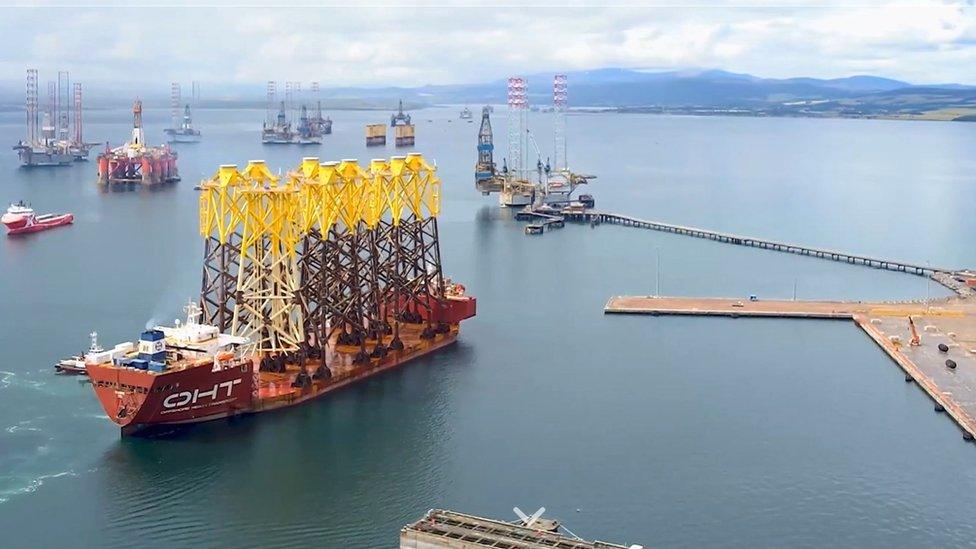
Cromarty Firth is one of two Scottish sites chosen to host a green freeport
But Richard Lochhead questioned the process by which the grants were awarded.
He said: "While the Scottish government welcomes all extra funding for Scotland, it is unacceptable for the UK government to decide how money is spent in areas of devolved responsibility.
"The fund gives little consideration to Scotland's longstanding economic needs or remote, rural, and sparsely populated regions by using a methodology which takes no account of these distinct needs."
Mr Lochhead also claimed the fund "cuts across devolved policy" and created "fragmentation and confusion" for local authorities and partner agencies.


It's been a rollercoaster week for relations between the Scottish and UK governments.
Nicola Sturgeon and Rishi Sunak were all smiles when they met up in Inverness, but are now locked in an absolutely furious row over the blocking of Holyrood's gender reform legislation.
These levelling-up funds might provide a longer-term insight into how the two governments want to interact.
It's part of a very deliberate strategy by UK ministers to directly fund local projects to underline that there are two governments working to make a visible difference in Scotland.
The decision to fund a new ferry also has a faint air of trolling about it, given the Scottish government's own shipbuilding struggles on the Clyde.
But of course Scottish ministers hate the idea of anything that cuts them out of the loop, particularly in devolved areas like transport.
It's hard to complain too much about cash being committed to communities, but they are growing increasingly vocal about how these funds are being distributed.
- Published19 January 2023

- Published27 June 2022
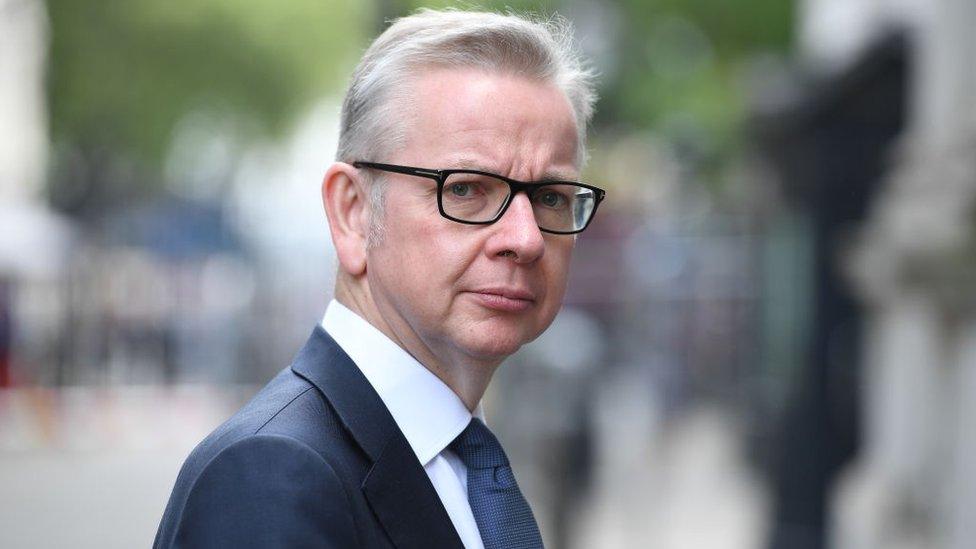
- Published15 March 2024
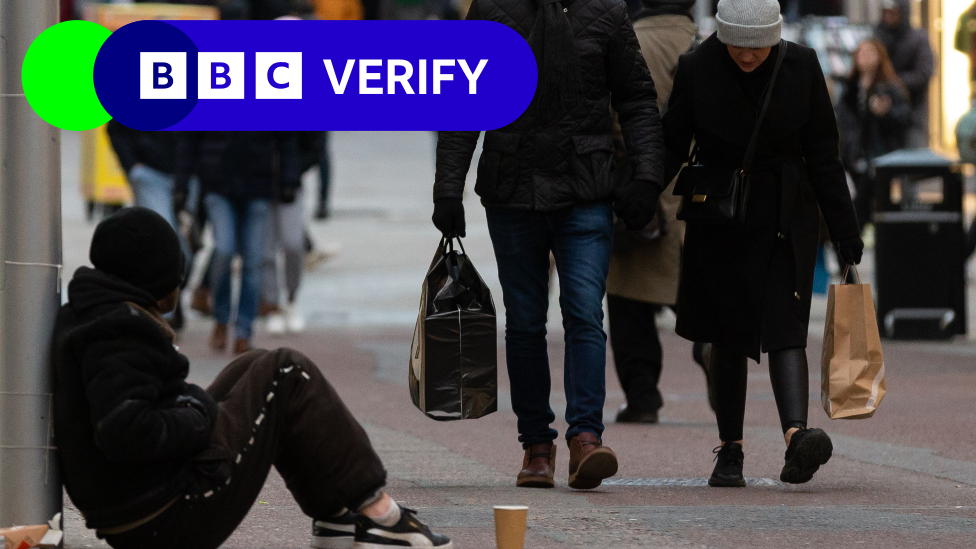
- Published19 February 2020
